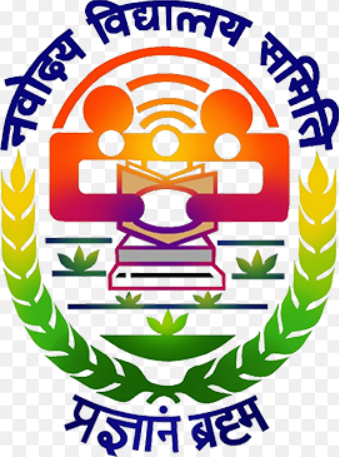Jawahar Navodaya Vidyalaya
Jawahar Navodaya Vidyalaya (JNV) are a system of government-funded residential schools in India, established with the aim of providing quality education to talented children from rural areas. These schools are affiliated with the Central Board of Secondary Education (CBSE) and are known for their academic excellence. Here are the key details about Jawahar Navodaya Vidyalayas:
1. Objective:
- The primary objective of JNVs is to identify and nurture talented children from rural areas who have the potential for high academic achievements but lack resources and opportunities. The goal is to bridge the rural-urban divide in access to quality education.
2. Formation:
- Jawahar Navodaya Vidyalaya were established in 1985 by the Navodaya Vidyalaya Samiti (NVS), an autonomous organization under the Ministry of Education, Government of India.
3. Admission Process:
- Admissions to JNVs are made through a merit-based selection process. A selection test called the Jawahar Navodaya Vidyalaya Selection Test (JNVST) is conducted annually for admission to Class VI. The test is designed to assess the mental ability and scholastic aptitude of candidates.
4. Residential Schools:
- JNVs are fully residential schools, and students are provided with free education, accommodation, and meals. The residential setup allows for an immersive learning environment and encourages holistic development.
5. Medium of Instruction:
- The medium of instruction in JNVs is the mother tongue or regional language up to Class VIII. From Class IX onwards, it is in English.
6. Infrastructure:
- JNVs are equipped with modern infrastructure, including well-equipped classrooms, libraries, science and computer labs, playgrounds, and hostels. The aim is to provide students with facilities comparable to those in urban schools.
7. Co-Curricular Activities:
- Alongside academics, JNVs emphasize co-curricular activities like sports, arts, music, and other cultural activities. This contributes to the all-round development of the students.
8. Faculty:
- JNVs have a dedicated and qualified faculty. Teachers undergo regular training programs to enhance their teaching skills and keep up with the latest educational methodologies.
9. Navodaya Vidyalaya Samiti (NVS):
- NVS is the governing body responsible for the administration of JNVs. It oversees the functioning of these schools and works towards ensuring that they maintain high educational standards.
10. Expansion:
- Over the years, the JNV system has expanded, and there is at least one JNV in each district of the country. The expansion aims to reach out to the remotest areas and provide quality education to deserving students.
11. Classes Offered:
- JNVs offer education from Class VI to Class XII. The curriculum is designed to foster a strong academic foundation and prepare students for various competitive exams.
12. National Integration:
- JNVs promote national integration by bringing together students from different states, cultures, and backgrounds. This helps in fostering a sense of unity and understanding among students.
13. Scholarships and Support:
- Meritorious students from economically disadvantaged backgrounds are eligible for various scholarships and financial support to facilitate their education.
14. JNV Alumni:
- Many JNV alumni have gone on to excel in various fields, including academics, sports, and civil services. The alumni network plays an essential role in contributing to the success and development of JNVs.
Jawahar Navodaya Vidyalaya have played a significant role in democratizing access to quality education, especially in rural areas. They stand as a testament to the commitment to providing opportunities for talented students who might otherwise face educational barriers.

Syllabus for Jawahar Navodaya Vidyalaya exam for class 6
1. Mental Ability:
- Figure Series Completion
- Analogy and Classification
- Geometrical Figure Completion
- Mirror Imaging
- Punching Pattern – Folding/Unfolding
- Space Visualization
- Embedded Figures
- Pattern Completion
2. Arithmetic:
- Basic Mathematical Operations (Addition, Subtraction, Multiplication, and Division)
- LCM (Lowest Common Multiple) and HCF (Highest Common Factor)
- Fractions and Decimals
- Four Fundamental Operations on Whole Numbers
- Simplification of Numerical Expressions
- Percentage and its Applications
- Measurement of Length, Mass, Capacity, Time, Money, etc.
- Perimeter, Area, and Volume
3. Language:
- Reading Comprehension
- Rearrangement of Sentences
- Synonyms and Antonyms
- Fill in the blanks
- Spelling Errors
- Correction of Sentences
- Comprehension of Passages
- Vocabulary
The syllabus is designed to assess the mental ability, arithmetic skills, and language proficiency of students. It is important for candidates to focus on the foundational concepts in mathematics and language comprehension.
Important Points to Note:
Medium of Examination:
- The JNVST Class 6 exam is conducted in multiple languages. The medium of the test is the same as the medium of instruction in the concerned state/UT.
Negative Marking:
- There is no provision for negative marking in the JNVST Class 6 exam. Therefore, students are encouraged to attempt all questions.
Selection Process:
- The selection process is based on the performance of candidates in the JNVST exam. Shortlisted candidates are invited for the next phase, which may include document verification.
Admission Criteria:
- Admission to JNVs is primarily based on merit. However, there is a provision for reservation of seats for students belonging to Scheduled Castes (SCs), Scheduled Tribes (STs), Other Backward Classes (OBCs), and other categories.
Availability of Information:
- Detailed information about the JNVST exam, including the syllabus, is provided in the official notification issued by the respective Jawahar Navodaya Vidyalaya Samiti (NVS) for each academic year. As the syllabus may be subject to changes, it is advisable to refer to the official notification for the most accurate and up-to-date information.
Candidates preparing for the JNVST Class 6 exam should refer to the official website of the respective JNV or the NVS website for specific details, updates, and official notifications related to the exam.